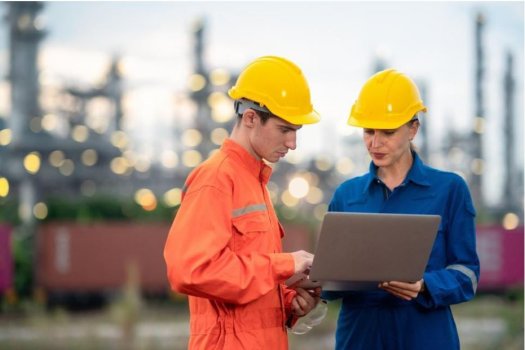After a pandemic year, workplace safety is top of mind for many businesses. According to one survey, employee safety and well-being replaced pre-existing priorities, like attracting top talent, as the dominant concerns for business leaders.
Meanwhile, many employees are dissatisfied with existing safety measures. A Gallup Poll found that just 65% of workers are “completely satisfied with their physical safety at work,” the lowest point since 2001. As the World Economic Forum succinctly notes, “U.S. perceptions of workplace safety have never been so low.”
In other words, thriving businesses will need to prioritize physical safety in the workplace, knowing that it’s a prerequisite for operational excellence.
In response, companies are turning to new technologies to enhance workplace safety. This is especially true for artificial intelligence (AI), which can considerably improve workplace safety without inundating security teams with additional responsibilities. More specifically, when AI takes on repetitive or dangerous tasks, it frees up human labor to carry out work that we are better equipped for — tasks involving aspects of creativity and empathy.
Continue reading: https://www.forbes.com/sites/forbestechcouncil/2021/10/28/four-ways-artificial-intelligence-is-enhancing-physical-safety-in-the-workplace/?sh=684c77ef3940
Meanwhile, many employees are dissatisfied with existing safety measures. A Gallup Poll found that just 65% of workers are “completely satisfied with their physical safety at work,” the lowest point since 2001. As the World Economic Forum succinctly notes, “U.S. perceptions of workplace safety have never been so low.”
In other words, thriving businesses will need to prioritize physical safety in the workplace, knowing that it’s a prerequisite for operational excellence.
In response, companies are turning to new technologies to enhance workplace safety. This is especially true for artificial intelligence (AI), which can considerably improve workplace safety without inundating security teams with additional responsibilities. More specifically, when AI takes on repetitive or dangerous tasks, it frees up human labor to carry out work that we are better equipped for — tasks involving aspects of creativity and empathy.
Continue reading: https://www.forbes.com/sites/forbestechcouncil/2021/10/28/four-ways-artificial-intelligence-is-enhancing-physical-safety-in-the-workplace/?sh=684c77ef3940

